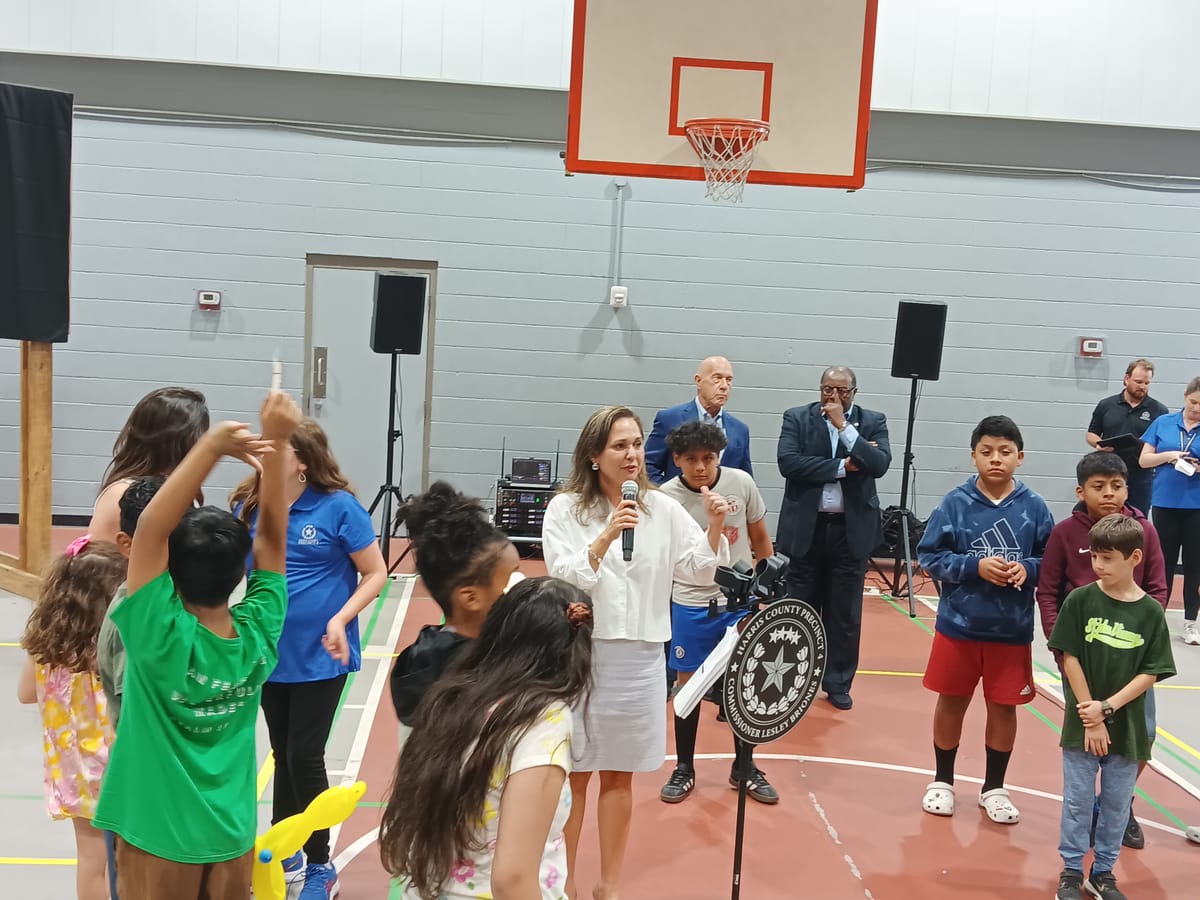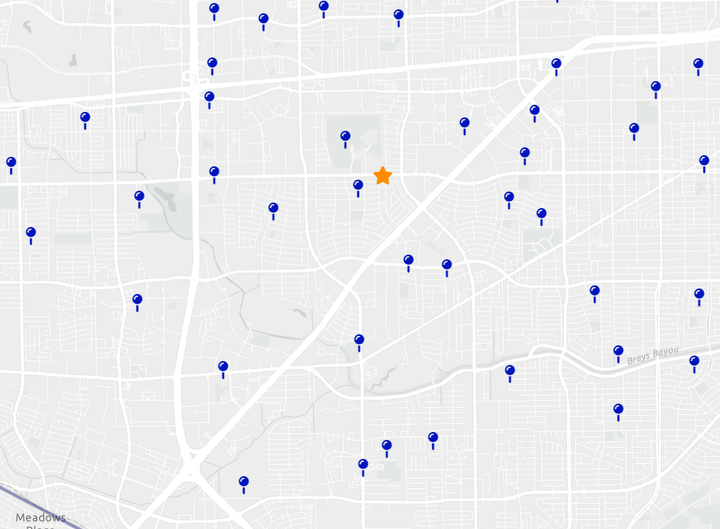METRO Chair Reaffirms Gulfton Corridor BRT Project, Touts Microtransit

Updated 7/23/24.
The future of METRO's controversial Gulfton Corridor BRT (bus rapid transit) plan had been called into question when METRO pulled the project from its website two months ago and said that all three of its BRT projects were under review.
METRO postponed the University Corridor BRT project indefinitely and is still reviewing the Inner Katy project. But when Harris County Precinct 4 unveiled its new master plan for Gulfton's Burnett Bayland Park on Wednesday, it included a BRT station along the planned route of the Gulfton Corridor line.
At the unveiling, METRO Chair Elizabeth Gonzalez Brock told The Sharpener that the Gulfton Corridor Project will continue.
Brock said to think of it more as a "Gulfton revitalization project with a BRT component." When asked if the BRT route and design would remain the same, she said METRO had made some modifications after talking with Harris County Precinct 4. But she declined to provide more specifics. HCP4 is taking the lead, she said, and METRO is just "supporting."
In a statement released on July 22, Brock remained vague:
METRO is proud to partner with Mayor John Whitmire and Commissioner Lesley Briones on a full revitalization effort in Gulfton. This multi-faceted project will include improved sidewalks and roadways, additional bus shelters, brighter lighting, more efficient drainage, and ecological improvements to outdoor public spaces through nature-based solutions. These combined efforts intend to promote an overall safer and healthier community. METRO seeks to proceed with grant approval for rapid transit and, as the project takes shape, will review and adjust plans that best support the revitalization project in its entirety. It remains our priority to provide transit options that are safe, clean, reliable, and accessible. We will keep our customers and stakeholders informed as the project develops.
One thing is clear: the Bayland Park master plan includes a new bus station just north of the park. So the BRT line is still going down Gulfton St. It is unclear whether METRO is still considering replacing some regular traffic lanes with dedicated bus lanes.
In her speech, Brock also touted "microtransit" as part of METRO's plan for the Gulfton area. If the nearest bus stop for some residents is a third of a mile away, walking there can be a burden—especially for the elderly, and especially in July. "You shouldn't have to walk...in the heat, to walk in the rain," she said.
Microtransit is designed to fill that gap. It's "a solution for the first and last mile," said Brock. Think public, short-range Uber. She said that METRO would offer people in Gulfton rides to locations within a 3-5-mile radius.
METRO has been piloting two microtransit programs in the Second and Third Wards since 2023, according to Houston Public Media. Thanks to a grant from Evolve Houston (a nonprofit that Brock, a CenterPoint executive, founded to promote electric vehicles), the company Ryde started offering people in those neighborhoods free rides to grocery stores, doctor's appointments, bus stations, and more. "We're finding that 80% of the people actually use it to catch transit," Brock said at the unveiling.
With a top speed of 25 miles per hour, the six-passenger electric vehicles are only designed for short trips. This June, METRO pledged $1 million to continue operating them—and expand microtransit to more neighborhoods.
Brock told The Sharpener that METRO plans to bring similar microtransit opportunities to Gulfton and across Houston. She said METRO will send out an RFP (request for proposals) soon, asking companies to bid for the contract to provide the transit.
"We're hopeful to be able to roll something out in the next 3-6 months."



Comments ()